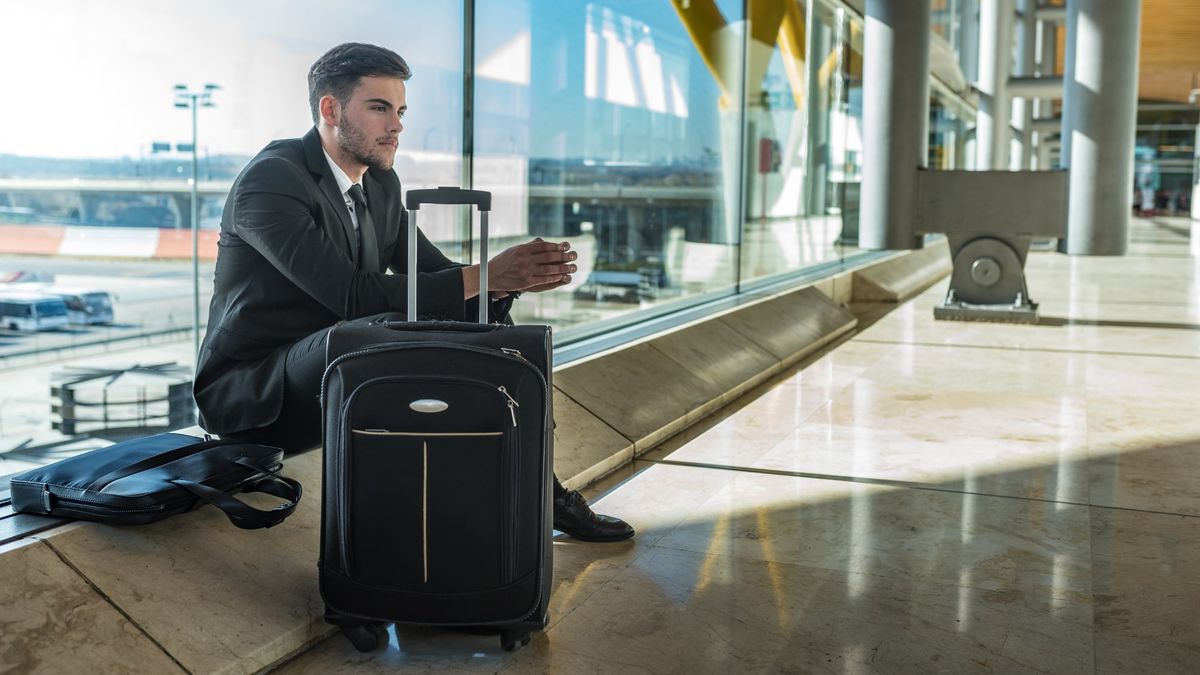Frequent flyer programs adapt to suit suddenly-grounded members
The coronavirus has made us "infrequent" flyers, so airline loyalty programs are changing to suit.

Frequent flying isn’t so much of a thing right now, but loyalty programs are in many cases getting better as airlines fight to keep customers and generate sorely needed revenue after the coronavirus ransacked travel.
Introduced nearly 50 years ago, air miles are a way for the industry to make money. Aside from locking in repeat customers by helping them accumulate trips, airlines sell miles to credit-card companies, banks, hotels and other businesses for billions of dollars. This revenue source is crucial now that the pandemic has thrown aviation into crisis, and airlines are piling in with new offers such as bonus points and lowering thresholds to qualify for more perks.
Some are also increasing the number of points members earn from shopping, as well as expanding partnerships so there are more opportunities to rack up miles. That means it should take less effort to secure reward flights or upgrade to business class.
Delta Air Lines is providing four times the usual amount of miles for purchases with American Express cards at U.S. supermarkets, while Etihad Airways is offering up to US$400 and 5,000 miles for passengers who postpone flights scheduled before July 31 and has points deals for online shopping and cash-back offers with brands including KFC and Pizza Hut.
“These programs appeal to a carrier’s very best revenue-producing customers, so there is abundant need to keep these consumers happy,” said Jay Sorensen, a former Midwest Airlines executive who is now president of consultancy IdeaWorksCompany. “In the near term, consumers will see a windfall of cheap travel for redeeming points or miles.”
Points as currency, reward schemes as assets
According to a 2017 study by Stifel Financial, airlines can get up to 2.5 cents for every mile, so they are a rich source of liquidity. Banks then benefit from annual charges on credit cards and merchant fees when cards are used.
JetBlue Airways this month sold loyalty points to Barclays for US$150 million. The airline received US$475 million from such deals in 2019, according to Stifel analyst Joe DeNardi. American Airlines got US $4.3 billion and Delta reaped US$4.2 billion last year, he said.
Read more: Airlines, hotels raise billions of dollars by selling points en masse
American Airlines said Tuesday its AAdvantage loyalty program – which it described as "the biggest asset we have in the company" – has a value of as much US$30 billion, and that it is negotiating with the U.S. Treasury Department to use at least part of it as collateral for a multibillion dollar loan.
Cathay Pacific, which flew just 458 passengers a day in April, is extending Marco Polo Club memberships and unused mid-tier benefits – access to business-class lounges, for example – by 12 months.
United Airlines has extended Premier memberships through 2022 and made it easier to qualify for reward flights and earn points. Emirates is letting elite Skywards members maintain their statuses by fulfilling just 70% of their tier travel requirements, as well as giving 20% bonus tier miles. This comes as the world’s biggest long-haul carrier considers thousands of job cuts.
Also read: These airline loyalty programs are extending your status
Loyalty programs could get miles better
“It’s a good thing for consumers and for the airlines,” said Steve Saxon, a Shanghai-based partner at McKinsey & Co. “Being able to earn miles for everyday spending makes flight redemptions much more accessible” and carriers can get revenue for seats that might otherwise go empty, he said.
Emirates’ members account for almost 45% of the carrier’s commercial revenue, according to Nejib Ben Khedher, divisional senior vice president of Emirates Skywards.
Abu Dhabi’s Etihad says loyalty programs help it “obtain valuable data on each guest which allows us to tailor their experience,” while Singapore Airlines does “not take their loyalty for granted.” Singapore Airlines last week reported a record loss.
Qatar Airways this week offered a 'status-match' with some airlines – including Emirates, Etihad and Singapore Airlines – and is planning new banking and hotel partners.
Cheap offers will extend until the end of 2020 for domestic routes and through next spring for longer-haul international routes, Sorensen said. Some airlines may cut down non-travel awards to save cash, or offer discounted business-class seats to loyalty members as companies reduce premium travel, he said.
“Loyalty programs will play an essential role in the industry’s recovery by creating incentives for customers to restart traveling,” said Renato Ramos, director for loyalty at Star Alliance. “In addition to the existing perks for frequent fliers, we are looking at ways to find new benefits.”
Airline woes
One risk is there’s little value left in miles or co-branded credit cards if the issuing airline collapses, which is a very real threat – as the likes of Virgin Australia, Avianca and others show.
Some are trying to incentivize members to spend on associated credit cards and transfer points in from other partners such as hotels, according to Gary Leff, co-founder of InsideFlyer who writes on loyalty programs.
“There will be empty seats to fill and airlines will need to rely on their programs to make generous offers in order to bring back consumers,” Leff said.
“Expect loyalty programs to run aggressive promotions, travel businesses to spend heavily marketing to their frequent fliers and frequent stay guests. In addition, with all of this excess inventory it’ll be easier for consumers to use their points. This will last as long as the downturn lasts.”
This article is published under license from Bloomberg Media: the original article can be viewed here

09 May 2020
Total posts 565
Historically (as in according to what I recalled), SIA's FFP was one of the hardest to gain status credits/mileage points of all the Star Alliance, with many exclusions including many discounted fares not able to earn much points if any.
Point redemption was also alot harder than pre-2014 Qantas FFP (and that's saying alot)
It's no surprise since SIA's FPP cater more for business travellers, but they may very well have to change tack as COVID-19 will significantly (and permanently) change some travel arrangement for certain business organisations; Krisflyer may have to chase more credit card and shopping tie-ups (but they have to do a lot more on ease of point redemption).
Hi Guest, join in the discussion on Frequent flyer programs adapt to suit suddenly-grounded members